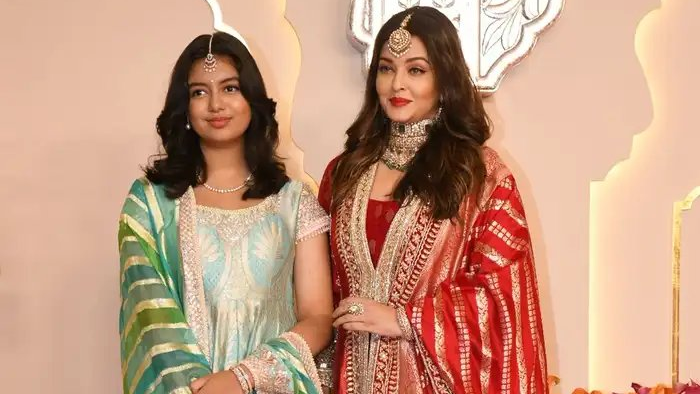The Delhi High Court grants interim protection to Aishwarya Rai and Abhishek Bachchan in a personality rights case against misuse of their names, images, and AI-generated content.c

Bollywood couple moves court against misuse of their names, images, and AI-generated content
New Delhi: The Delhi High Court has granted interim protection to Aishwarya Rai Bachchan and Abhishek Bachchan in a significant case concerning personality rights. The star couple approached the court after alleging that their names, images, and digital likenesses were being misused without authorization across online platforms, merchandise, and even AI-generated content.
The injunction, issued by Justice Tejas Karia, will remain effective until January 15, 2026, when the matter is next listed for hearing.
What the case is about
At the heart of the plea lies the right to publicity, popularly referred to as personality rights — the ability to protect, control, and profit from one’s own image, name, or likeness.
Abhishek Bachchan’s counsel argued that the actor’s photos and signatures were being illegally reproduced, with AI-generated videos and even sexually explicit morphed images circulating online. Similarly, Aishwarya Rai Bachchan’s lawyers pointed out unauthorized merchandise like mugs, T-shirts, and drinkware being sold under her name, along with fake entities such as “Aishwarya Nation Wealth” falsely listing her as Chairperson.
Senior Advocate Sandeep Sethi, representing Rai Bachchan, highlighted that obscene morphed and AI-generated content was not just a financial violation but also a gross breach of dignity.
Lawyers representing the Bachchans
Aishwarya Rai Bachchan is represented by a strong legal team including Senior Advocate Sandeep Sethi and advocates Pravin Anand, Ameet Naik, Madhu Gadodia, Dhruv Anand, and Udita Patro.
Abhishek Bachchan is represented by advocates Pravin Anand, Ameet Naik, Madhu Gadodia, and Dhruv Anand, who stressed in court that fake and AI-generated materials were damaging his reputation.
Pravin Anand, speaking to ANI after the order, called it a “landmark judgment” that sets the foundation for publicity rights in India. “The right of publicity is not confined to celebrities but extends to every common person whose name, voice, or image is exploited on the internet,” he said.
What the Delhi High Court said
The court came down strongly against unauthorized exploitation of the Bachchans’ identities. It observed that such misuse could:
- Mislead the public into believing false endorsements
- Cause financial and reputational harm
- Dilute the goodwill celebrities have built over years
Justice Karia restricted individuals, companies, and platforms from creating, sharing, or distributing AI-generated content, deepfakes, misleading endorsements, or morphed images involving the actors.
The court further directed Google LLC and e-commerce platforms to remove flagged URLs within 72 hours of notice. It also instructed the Ministry of Electronics and Information Technology (MeitY) to issue necessary blocking directions.
Why this matters
The case is being closely watched as India currently lacks a dedicated statutory framework for publicity rights. Courts typically protect such rights under the broader scope of Article 21 of the Constitution, which guarantees the right to privacy.
This decision is expected to strengthen the legal foundation against AI-driven misuse, deepfakes, and online exploitation of both celebrities and ordinary citizens.
Notably, in 2023, the Bachchans’ daughter Aaradhya Bachchan also secured relief from the Delhi High Court against fake online reports about her health.
